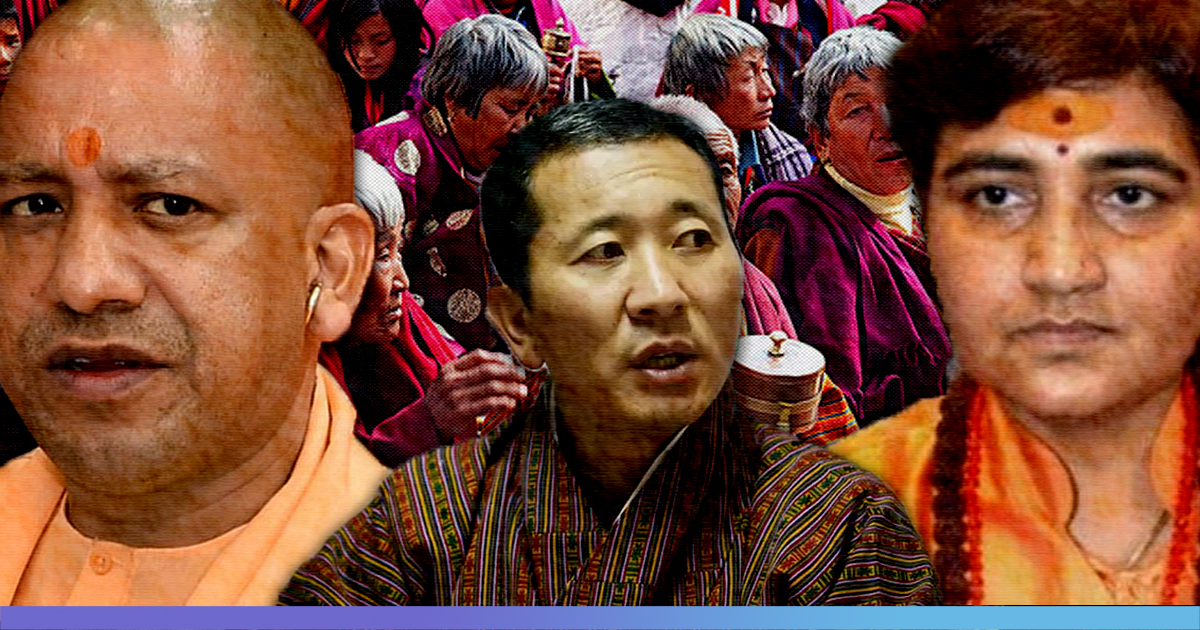Bhutan experienced a significant change in its governance in 2008, as the Kings of Bhutan renounced absolute monarchy and adopted constitutional monarchy. After embracing constitutional monarchy, Bhutan has been able to achieve its millennium development goals, as it now provides its citizens with free primary health care services, basic infrastructure coverage, while managing to stay carbon neutral. This major shift was accompanied by a milestone ordinance which mandates all religious organisations and figures to stay away from taking part in politics or canvassing for a political body or a figure. They are denied voting rights too.
Religion transcends politics
Article 3 of Bhutan’s constitution states, “It shall be the responsibility of religious institutions and personalities to promote the spiritual heritage of the country while also ensuring that religion remains separate from politics in Bhutan. Religious institutions and personalities shall remain above politics.” Bhutan uses religion’s own claims to deny religious personalities the right to vote or take part in the politics of the country. Religion claims itself to be transcendental and above and away from all worldly matters. Politics is extremely worldly and mortal in nature. Religion, therefore, need not bother itself with politics and can involve itself in promoting peace and harmony, and Bhutan’s spiritual heritage argues the Bhutan government. Tenzing Lamsang, President of Media Association of Bhutan in a tweet, juxtaposes India’s and Bhutan’s political situation and expresses his delight over their Kings’ decision to separate politics and religion.
Bhutan’s Constitution keeps religion and politics separate and so religious figures are not allowed to stand as candidates or vote.
There has always been debate on this in Bhutan.
But looking at India I thank the wisdom of my Kings & the drafting committee of the Constitution.
— Tenzing Lamsang (@TenzingLamsang) April 21, 2019
Is barring religious figures from politics undemocratic?
The same constitution which mandates religious entities to stay from politics, promises all its citizens the right to vote. By denying religious personalities the right to vote, is it indirectly failing to treat them as citizens?
This ordinance is only reinforcing the ideals of religion and helping religious personalities achieve their purpose. Moreover, the purpose of politics is good governance and welfare of citizens, and the purpose of religion is social harmony, peace and spiritual well being. These two different yet highly essential platforms can independently function. And considering the multiplicity of beliefs and faith, they are more equipped to do justice to their followers when they are independent of politics, which encompasses people of different religions.
Some may argue that a religious individual may choose to be worldly too. We should not assume the authority to decide on his/her behalf after all a religious individual is also a citizen, which is also not false. But in the interest of the state and state’s governance, we will have to pull a fence.
Is it feasible to separate politics and religion in India?
In a country like India, where there’s a multiplicity of religions and where politics and religion have grown to be concomitants of each other, it separating the two of them would be a very arduous task. Politicians bank on religious divides and casteism to create and develop their vote banks. But if implemented, it certainly might rid democracy off it’s one of the deepest regrets.
Also Read: Bhutan PM To Conduct Weekly Press Conference, While Indian PM Yet To Conduct Even One In 4.5 Yrs










